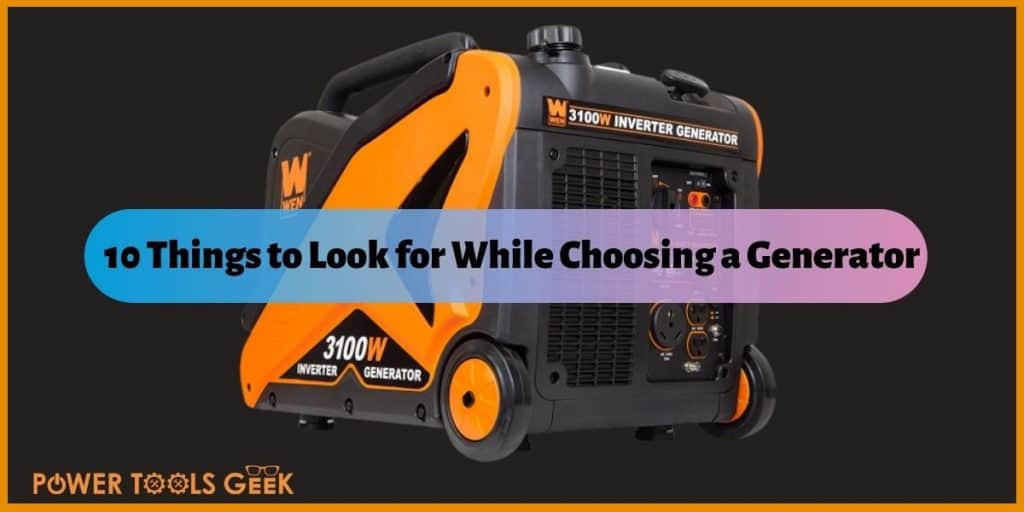10 Things to Look for While Choosing a Generator
Generators are a necessity in most households as they provide vital energy to support all your electrical appliances during power outages.
Now, if you’re in the market choosing the perfect generator for your task, you’ll realize that it’s a challenging affair at the very least as they are many factors to consider beyond price.
Gladly, we shall highlight the top 10 things to look for while choosing in a generator in this article.
Table of Contents
1) Fuel Capacity
When it comes to fuel capacity, the bigger, the better.
See, the amount of fuel your generator can hold will determine its runtime before its next refill and the bigger the tank, the longer it will take before needing to refill it.
If you are an average home user, for instance, you would want to get yourself a generator option that holds at least five gallons of gas. With such a model, you are assured of at least seven hours of runtime.
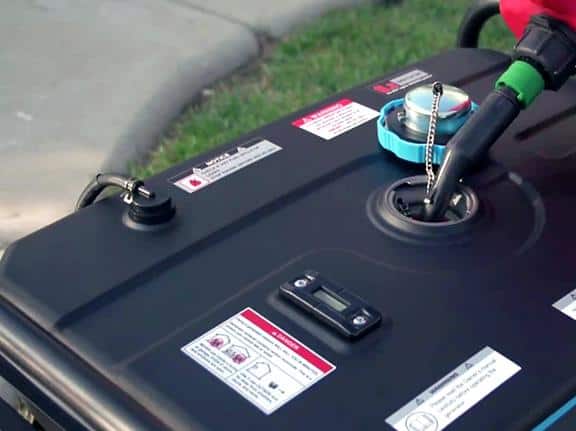
Ideally, when searching for the ideal generator, you will want to know your power consumption needs and volume.
2) Fuel Efficiency
While still at the issue of fuel, it's crucial that you consider fuel efficiency.
Fuel efficiency refers to the rate at which your generator consumes fuel. From fuel savings to low cost of ownership, a fuel efficient generator will provide you with plenty of benefits.
To determine a unit’s fuel efficiency, you’ll need to consult product information.
Generally, however, the most fuel-efficient generators are the inverter generators and those that run on diesel.
Again, keep in mind that the more fuel efficient a generator is, the higher priced it is.
3) Alternative Fuel Option
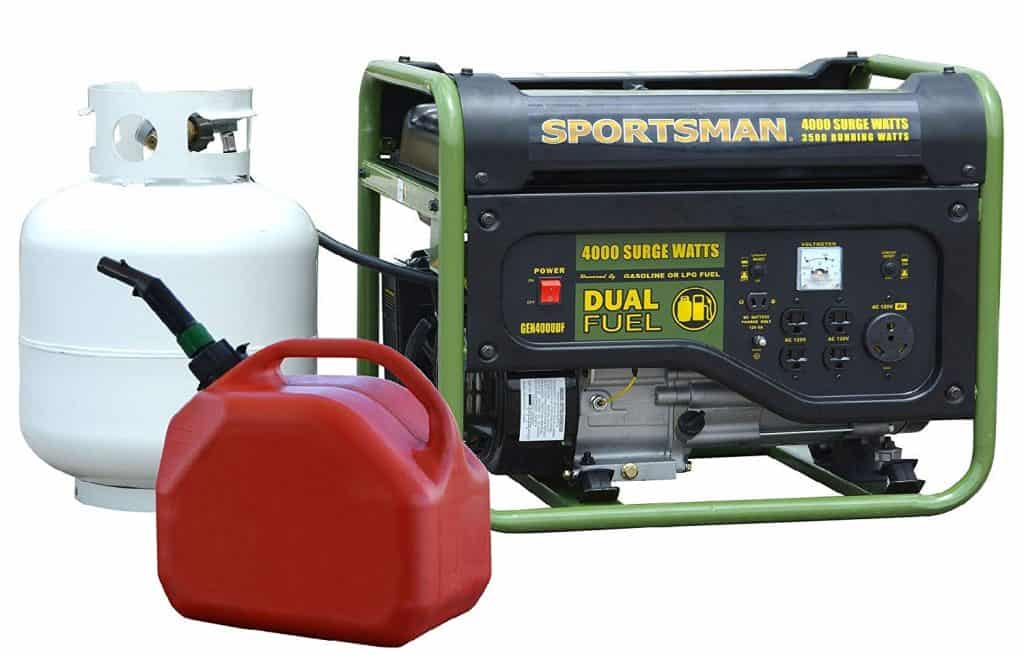
What fuel options does a generator support?
When it comes to fuel types, the most common options include propane, diesel, and natural gas.
Each of the above options has its benefits and drawbacks. Gasoline, for instance, provides much power, but it has a drawback of its short stability life.
Diesel, on the other hand, burns slow and will provide you with extended runtime, but it does not generate much power.
But what if you had a generator with the option of using either fuel?
Dual fuel generators are versatile and will provide you with an option on the fuel option.
4) Power Output
Before purchasing a generator, you will need to consider whether you are using it for primary applications or standby applications.
Then, you will need to determine your total wattage requirements according to your requirements.
To calculate to total wattage requirements, you’ll need to checklist all the items you intend to power, note down their surge wattage requirements, and then total the wattage.
Based on the total wattage, you can now go for a generator that will meet your power requirements. The ideal generator should offer consistent power that will meet all your needs.
5) Portability
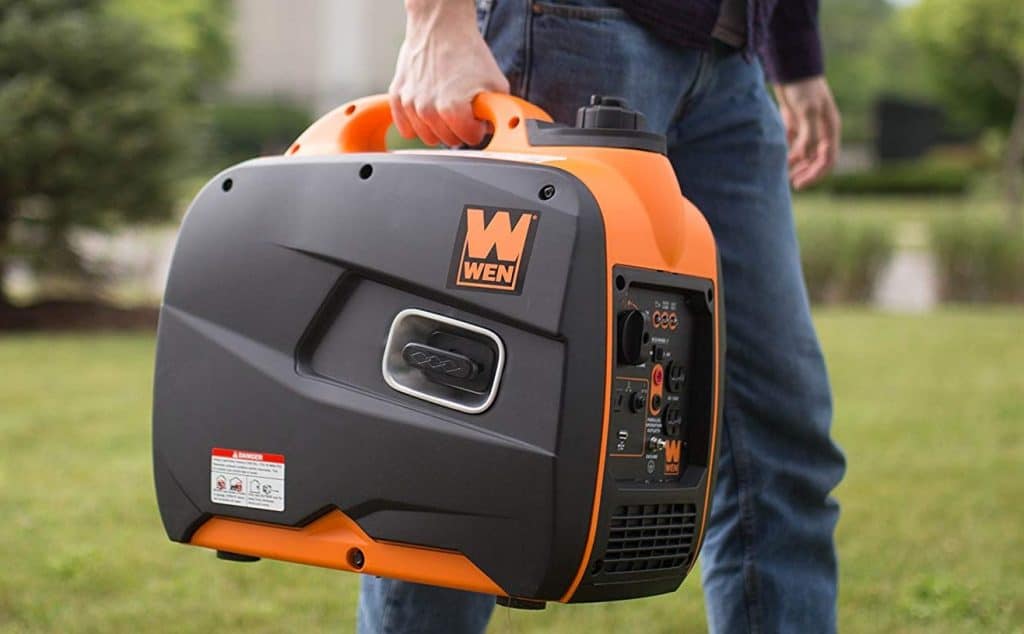
Read more: How Big of a Generator Do You Need?
Do you want to use your generator both at home and for RVing?
If you are planning to use your generator for outdoor escapades such as tailgating, RVing, or camping, portability is of the essence.
Ensure that you pick a generator that is lightweight and portable.
Ideally, a portable generator should not weigh more 60 pounds. Still, weight should not limit your choice as you may find a weighty generator that ticks on all your checklist.
Beyond the weight factor, we recommend that you choose a generator with maneuverability features such as a foldable handle alongside wheels. Both of these features will underline the portability of your unit.
6) Durability
The last thing you would want is to purchase a generator, only for it to break after a few years of usage. In any case, generators are an expensive option and are expected to provide you with a long period of service.
So, when shopping, you would want to assess the overall construction and assembly of your generator.
Examine the components used to make the generator, and even compare them with the competition.
Ideally, a durable generator should be constructed from high-quality materials that can withstand different environmental conditions.
Whatever material you choose to go with, ensure your generator has a full frame steel protection on the outside to protect the interior components.
Finally, your generator should feature reinforced standing legs, and this should help in preventing direct surface contact and wear.
7) Noise Level
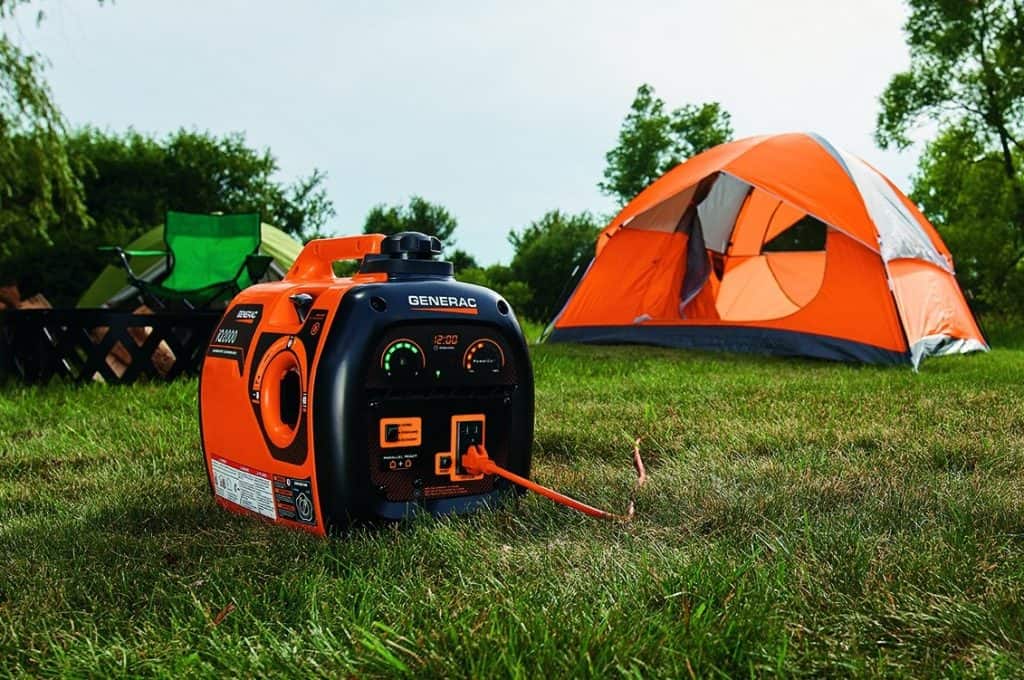
It’s always crucial that you check on the noise rating and ensure that your generator doesn’t sound like a V8 engine.
High noise levels are not only distracting but can be annoying to neighbors and fellow campers.
Generally, inverter generators with advanced mufflers dampen the noise generated and will provide you with the ultra-quiet operation.
To give you an idea of the noise ratings, we have compiled a table below that will paint a picture of the noise levels alongside what is expected.
Noise Rating | Sound |
|---|---|
20Db | Rustling leaves |
30Db | Running fan |
40-50dB | Library/quiet office |
50-60dB | Normal conversation |
70dB | Vacuum cleaner |
90dB | City Traffic |
100dB+ | Night club |
8) Number of Outlets
The number of receptacles in a generator is a convenience feature.
Before choosing a generator, you will need to determine the number of appliances you will need to power.
Definitely, you will not need to power all items simultaneously, but there are the essential items that you must keep running at all times.
For instance, during a power outage during winter, the lighting system, alongside the heating system, must be kept running simultaneously.
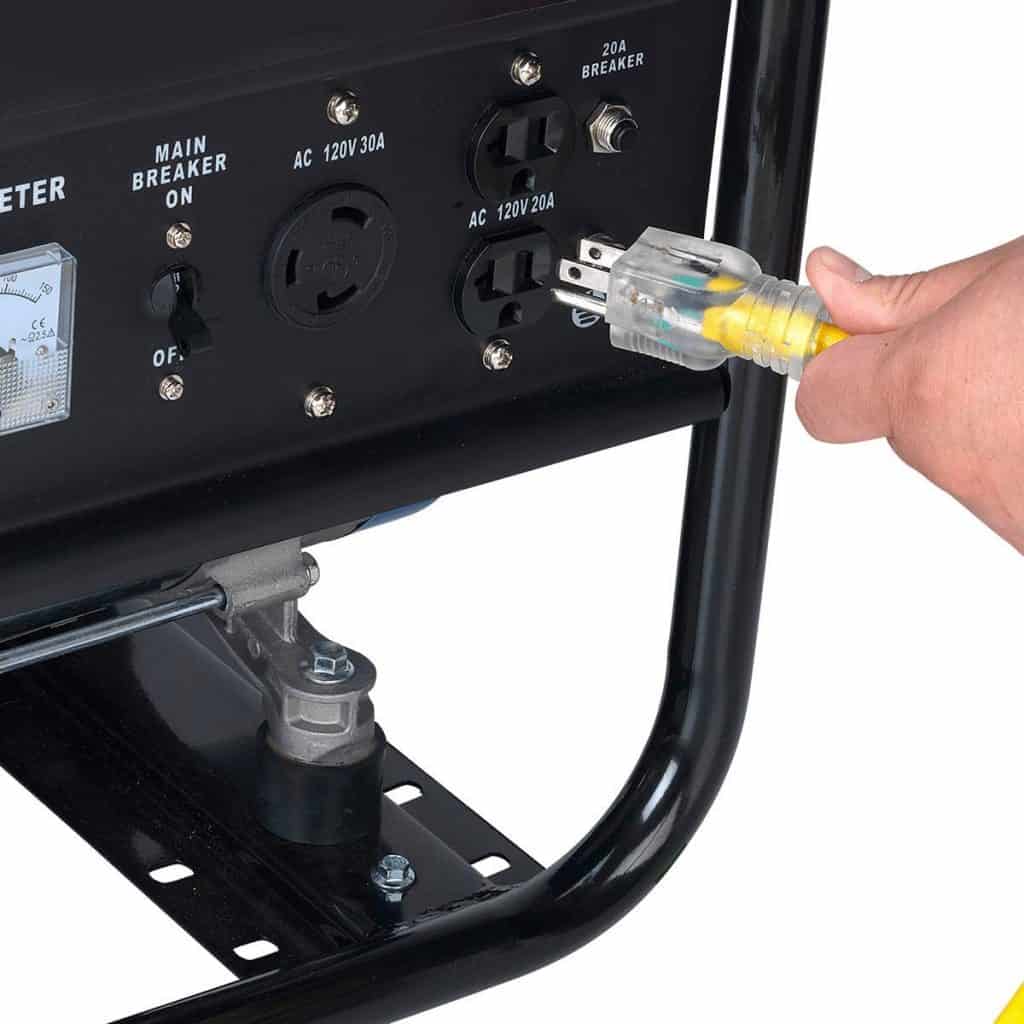
Therefore, if you are to get a generator, it's advisable that you determine the appliances you need to run and get one that has the number of outlets that you need.
Here, the higher, the better, though the total number of receptacles do not go over 6.
9) Auxiliary Features
There are some features in a generator that do not necessarily affect its performance but help in making the experience more gratifying.
An automatic start, for instance, will promote a hands-free operation, allowing you to start your generator without lifting your hand.
An electric start, on the other hand, contrary to pull-start, will provide an easy push-button alternative to start your generator.
10) Cost
The final thing to consider with the generators is the cost.
Should you go for a cheap or premium brand?
Well, it depends on what you want to achieve.
When choosing a generator, we recommend that you choose a unit that is within your budget range, and most importantly, choose one that will satisfy your needs. This way, you will have struck the perfect balance between cost and utility.
Conclusion
Choosing the right generator is a matter of understanding what you need your generator for. You do not need to be an expert to choose the right generator; you’ll only need to figure out what you need from a generator.

